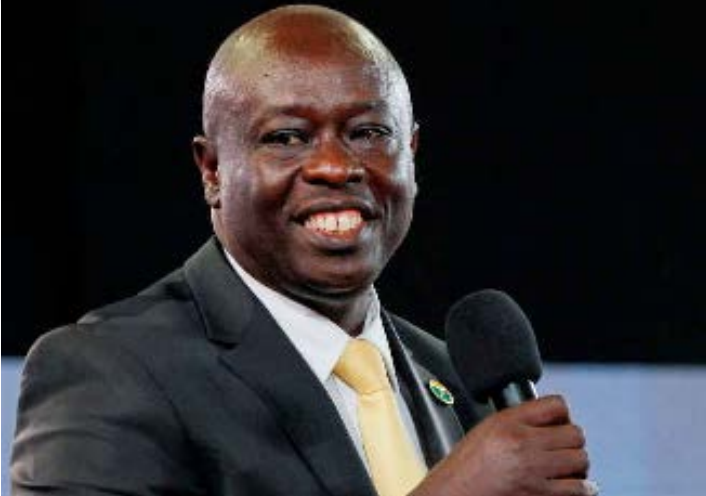Gachagua and Mudavadi: Duties, overlapping roles and likely outcomes

The Office of the President recently issued the first Executive Order of the year 2023. The Executive Order entails organisation of the Kenyan Government. The Executive Order comes after President William Ruto introduced the Office of the Prime Cabinet Secretary following his successful win in the 2022 presidential election. The Office of the Prime Cabinet Secretary is not an official position as the Constitution of Kenya only provides for the Office of the President, Deputy President, Attorney-General and at least 14-22 Cabinet Secretaries.
The Office of the Prime Cabinet Secretary can as such be said to be an out of convenience office rather than the norm. This office is thus not unconstitutional as the Prime Cabinet Secretary can be considered a Cabinet Secretary albeit being the third powerful position in the executive structure. Kenya has thus had three Prime Cabinet Secretaries since independence.
President Jomo Kenyatta was the first Prime Minister, as it was then known, his position was more of a transitional period one before Kenya attained full independence. Azimio la Umoja coalition leader, Raila Odinga, was the second Prime Minister, a position created out of convenience during the power sharing agreement following the contestation of the 2007 presidential election results by Mr Odinga.
The Executive Order outlined various functions of the various government offices including those of the Deputy President and the Prime Cabinet Secretary. Article 147 of the Constitution provides for the functions of the Deputy President whose main function is to be the principal assistant to the President and to deputize the President in the execution of the President’s functions. The President is given the power to assign functions to the Deputy President; under the Executive Order these functions entail:
- Chairing Cabinet Committees;
- Overseeing implementation of Cabinet decisions across all Ministries and State Departments;
- Co-ordinating Inter-Governmental relations between the National Government and County Governments including chairing the Inter-Governmental Budget and Economic Council (IBEC);
- Liaison with Constitutional Commissions and Independent Offices in matters that require intervention by the National Government including budgets, policy formulation and implementation of their recommendations;
- Co-ordinate the planning and supervise the implementation of development partners’ funded programmes and projects;
- Oversee Public Sector Reforms; and perform other functions that will be assigned.
In addition to the functions, the Office of the Deputy President has been mandated with certain key offices namely the Coffee Sub-Sector Reforms Implementation Standing Committee, IBEC and Inter-Governmental Relations Technical Committee among others.
On the other hand, functions of the Office of the Prime Cabinet Secretary include:
- Assisting the President and the Deputy President in the co-ordination and supervision of Government Ministries and State Departments;
- In liaison with the Ministry for Interior and National Administration, oversee the implementation of national government policies, programmes and projects;
- Chair and co-ordinate the national government’s legislative agenda across all ministries and state departments in consultation with, and for transmission to the party/coalition leaders in Parliament;
- Chair the Principal Secretaries’ Committees and supervise the technical monitoring and evaluation of government policies, programs and projects; and
- Perform any other function as may be assigned by the President.
The Office of the Prime Cabinet Secretary, has also been mandated with certain offices key among them the Government Delivery Services (GDS) which in the previous administration was known as the Presidential Delivery Unit (PDU) where the delivery unit was reporting to the Chief of Staff.
The functions assigned to either party are meant to keep them busy; however a closer reading of the functions shows an overlap and high likelihood of a supremacy battle. For instance, an overlap of functions can be seen where the Deputy President has been tasked with the overseeing of the implementation of Cabinet decisions in all ministries whereas the Prime Cabinet Secretary is tasked with the overseeing of the implementation of policies, projects and programmes of the Interior ministrty. However, some of the functions of the Prime Cabinet Secretary are political such as chairing and coordinating the government’s legislative agenda. This is key being that Mr Mudavadi played a critical role in President Ruto’s presidential bid.
Moreover, the organisation structure under the Executive Order reveals that both parties will be reporting directly to the President. This will likely stir supremacy battles if it has already not, given that the Prime Cabinet Secretary is tasked with assisting the Deputy President in the co-ordination and supervision of ministries and state departments. Additionally, placing of the Government Delivery Services under the Office of the Prime Cabinet Secretary can be argued as a sideline of the Deputy President’s functions of deputising the President in his function such as co-ordination and delivery of national priorities and flagship programmes.
Another overlap of function under the Office of the Deputy President though not necessarily with that of the Prime Cabinet Secretary is the Deputy’s task in overseeing implementation of the coffee sub-sector reforms yet there is a Ministry of Agriculture headed by a Cabinet Secretary. Assigning of this sub-sector to the Deputy President’s office seems more of bustling the office.
As a Bible verse says no one puts new wine into old wineskins, being a new administration, it is expected for there to be new changes in State governance. The changes have adopted a different structure from what was previously there. Going forward, we can only be keen in monitoring how the two offices coordinate in ensuring Kenya’s economic growth.

